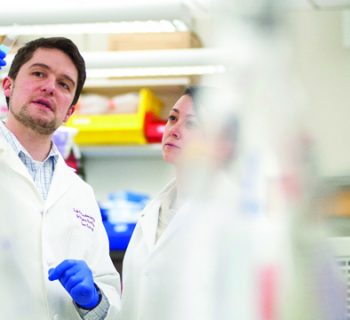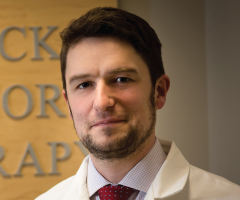New Landing Page

Odylia is an independent nonprofit organization working to bring lifesaving and life-altering treatments to those with rare diseases by changing how drugs are developed. Our goal is to bring proven therapeutics to patients regardless of the number of people with the disease or the opportunity for a company to make money.
By first identifying promising treatments, we are able to partner with patient groups, community experts, and financial sponsors to develop strategic, scientific, and clinical plans. Through collaboration with industry and foundations, we can move treatments from concept through development and to patients with rare diseases.
Our first program was licensed to PTC Therapeutics in 2019 for the treatment of Leber Congenital Amaurosis (LCA) caused by mutations of the RPGRIP1 gene. Our second program was launched in June 2020 through a partnership with patient advocacy groups to develop a gene therapy to treat vision loss in patients with Usher Syndrome caused my mutations of the USH 1C gene.
Odylia’s Origin Story: From an idea to a revolution in drug development
Like all good ideas, Odylia was born out of necessity. Scott Dorfman, is the father of two children with a rare disease called Usher syndrome, and a successful businessman. Luk Vandenberghe is an innovator in the field of gene therapy. After years of funding research, and millions of dollars later, Scott was frustrated by the inability to move promising therapeutics forward and the lack of alternative options. Parallel to Scott’s experience, Luk, like other researchers, continued to face challenge after challenge bringing therapeutics for rare diseases to clinical trials.
During discussions about Luk’s research, Scott and Luk expressed their concerns and the seeds for Odylia were planted. Partnering together, founders Scott Dorfman, Luk Vandenberghe, and Eric Pierce created the framework for a non-profit biotech company whose sole mission is to move new drug therapies for rare disease from research into the clinic. Generously funded by Massachusetts Eye & Ear (MEEI) and Usher 2020 Foundation, Odylia Therapeutics became a reality in 2017 with the goal of facilitating treatments for low prevalence retinal disease with proof-of-concept science to Phase I/II/III clinical trials. Ultimately Odylia will use this platform for potential therapeutics with proven science to treat patients everywhere.




